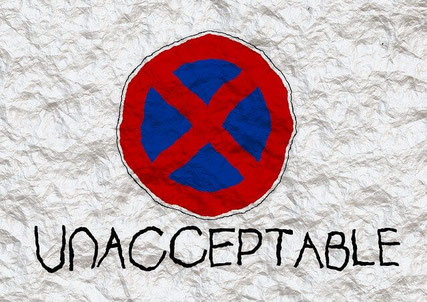
If you want to motivate yourself to 'do better', you should know that self-compassion beats self-criticism, I argued in last week's Southern Star. The column is reproduced below.
Imagine the following scenario. Little Tommy is playing in a baseball match. It is a very important match and everyone is watching in a stadium as big as Croke Park.
In this match, the rules are simple: three strikes and you're out. The first ball is thrown. Little Tommy misses it. Everyone gasps. Little Tommy's face crumples. His heart beating fast, he prepares for the next ball. Little Tommy lunges, takes a swing but again, he misses it. The stadium is silent. You can hear a pin drop. It all come down to this, the third and last ball. The ball is thrown, Little Tommy swings but he misses it. The game is over; Little Tommy's team have lost and he is devastated.
Now, imagine Coach A comes out. "You idiot", he yells at Little Tommy. "You are useless! Pathetic! All those hours in practice, it was all for nothing. You never do anything right. You're a joke, a pathetic joke".
Alternatively, imagine Coach B comes out. "Oh Tommy, bad luck. I could see how hard you were trying and I know you're disappointed. I think you might have been standing a bit far back and not quite at the right angle. How about you come out and practice with me during the week?".
A question: which coach will get a better performance out of Little Tommy?
You might think, that’s easy – Coach B's gentle encouragement is obviously the better approach.
Now, a second question: which coach are you to yourself?
The above analogy comes from CBT expert Prof. Roz Shafran, who often uses it with her clients. Many people think self-criticism has a positive function, notes Prof. Shafran. "It keeps me on my toes", "it stops me getting ahead of myself", "it helps me achieve my goals" – these are all common justifications, especially among people with perfectionist standards.
The thing is, it's untrue. Everyone knows Coach A's abusive, hectoring voice isn't good for Little Tommy's performance, so why should it work for our own?
When I’m working with a client who berates and insults themselves, I don’t respond by insisting that they’re a wonderful person. I don’t ask them to repeat daily affirmations such as “I am lovable and worthy” (research shows these kind of affirmations tend to make people feel worse about themselves). Rather, I stress that it’s just not in their interest to talk this way. Every day you talk this way, you will experience more negative and fewer positive emotions. It fuels emotional distress. It is linked to self-harm, depression, anxiety and other mental health problems.
SELF-COMPASSION
As for motivating yourself to “do better”, know that self-compassion beat self-attacking. Self-compassion is different to self-esteem or self-pity. Rather, you aim to treat yourself with the same care and concern you would show a loved one and recognise that you are, as Self-Compassion author Dr Kristin Neff puts it, ‘an imperfect human being living an imperfect life’.
Neff’s research has found self-compassionate people are ‘just as likely to have high standards for themselves as those who lacked self-compassion, but they were much less likely to be hard on themselves on the occasions when they didn’t meet those standards’. They have better romantic relationships; self-critics assume their partners are judging them as harshly as they judge themselves, so the ‘misperception of even fairly neutral statements as disparaging often leads to oversensitive reactions and unnecessary conflicts’. Self-compassionate people are more likely to devise specific plans for reaching their goals and for making their lives more balanced. They are also more open to feedback and criticism, and better at owning up to their mistakes.
This makes perfect sense. A self-attacking voice can be brutal and painful; if you see mistakes as proof that you are a failure, it’s natural to try and avoid this pain by blaming others or by not taking ownership. Self-compassion doesn’t mean letting yourself off the hook when you err. When you see mistakes as human and inevitable, you are more likely to accept and learn from them.
Just think of Little Tommy, and remember you’ll get better results by being the kind, helpful coach – not the harsh, abusive one.